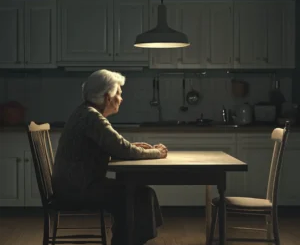Brenda Lee’s name may not be as recognizable as some of the other music stars from the 1960s but when you think of Christmas, you’ll know her song, and start humming her catchy tune, “Rockin’ Around the Christmas Tree.”
When Lee, now 78, first hit the stage, she wasn’t old enough to drive but her powerful vocals steered her “unprecedented international popularity” as the most successful female artist of the 1960s.
Lee, whose voice defied her diminutive stature at only 4 foot 9, became a fan favorite when she was only 12.
Brenda May Tarpley, born in 1944, got her start in the late 1940s, became huge in the 1950s, and over her career–that started before she left elementary school–she topped the charts 55 times, earning the title as the most successful female recording artist of the 1960s.
When Lee was only eight (according to Rolling Stone), her father, a construction worker, was killed at work and little Brenda–who then changed her last name to Lee–became the family’s primary provider.

Taking care of her younger brother, big sister, and mother–a cotton mill worker–was not a duty, but something she wanted to do. She said that she was thrilled when she made her first $20, so she could help her family: “Even at that young age, I saw that helped our life,” Lee said, adding “It put some food on the table. It helped, and I loved it.”
The Atlanta-born chanteuse, called a “pioneer of early rock and roll,” by the Georgia Encyclopedia, achieved “unprecedented international popularity in the 1960s.”
But, an incredibly humble human, Lee credits those who helped her achieve her dreams. When Christianity Today asked what she thinks about being a legend, Lee said “I don’t think of myself that way!” She continued, “I’m just a girl who’s been blessed to be doing what I’m doing, and there’s a lot of people who’ve sweated a lot of tears and put a lot of life’s work into me to be able to have my dream. So, if I’m a legend, then they’re legends, too.”
In 1956, the young girl joined country star Red Foley for a show at the Bell Auditorium near her home in Augusta, and she belted out “Jambalaya,” by Hank Williams.

She was then signed to appear on Foley’s Ozark Jubilee, a country music show, where millions of viewers fell in love with the sassy 12-year-old whose talent was developed well beyond her age.
In the same year, Lee signed with Decca Records, and the next year, she moved to Nashville, Tennessee, and fusing country with rhythm and blues–highlighted by her hiccupping vocals–she recorded early rockabilly classics like “BIGELOW 6-200,” “Little Jonah,” and “Let’s Jump the Broomstick.”
When asked if–when as a young girl–she was nervous performing in front of large crowds, she answered: “No, not really. Nobody ever told me to be nervous. The stage always felt like a hometown to me because I had been in front of people ever since I was 3 years old, singing to people. So it was a very comfortable spot for me.”
In 1957, Lee earned the nickname “Little Miss Dynamite” for her pint-sized powerhouse recording of the song “Dynamite,” and in 1958, fans heard “Rockin’ around the Christmas Tree,” a genre and generation-crossing holiday standard, released when she was only 13.
“I knew it was magical,” she told Rolling Stone.
Over the next couple of years, she charted with hits like “Sweet Nuthin’s,” “All Alone Am I,” and “Fool #1.”
Most of her songs, however, contradicted her experience as a young girl. Her mother didn’t let her date and she graduated high school not understanding the heartbreak of young love.

She was only 16 when she said “Love could be so cruel” in the song “I’m Sorry” and only 16 when she said “I want his lips to kiss me” in the song “I Want to be Wanted,” both back-to-back hits when she was still in school.
And when she turned 18, she met Ronnie Shacklett, whom she’s now been happily married to for 60 years.
Life on the road for Lee as a youngster had its difficulties. She celebrated her 12th birthday in Las Vegas and speaking with the Las Vegas Journal, Lee explained her loneliness.
“Of course, I wasn’t even allowed to walk through a casino, I was so young. So I didn’t even know what a casino looked like. They took me into the kitchen, then into the showroom. And then when my show was over, I was brought back out through the kitchen and back up to my room. Children weren’t allowed … in the casino area.” She continued, “There wasn’t anything to do in Vegas for a kid. The most fun I had was on the stage.”
Speaking on what she missed out on as a child, the award-winning Lee said, “Many times, I yearned to be with my friends rather than be out there on the road.”
Turns out she made new friends on the road, like with the music group that opened for her at a 1962 show in Germany. “I hung out with John,” she says effortlessly, speaking of John Lennon. “He was extremely intelligent, very acerbic with his jokes, just a gentle person. When I found out that they later said they were fans of my music, I was just floored.”

I Invited My Friend Over, and His French-Speaking Skills Uncovered a Shocking Family Secret

When Chad’s French in-laws come over, he invites his friend, Nolan, along — to keep him company while Camille and her parents converse in French. While they have dinner, Chad discovers that Nolan understands French and reveals a family secret.
My wife, Camille, is as French as they come. We met at college when she was an exchange student studying International Politics, and we’ve been together ever since.
Camille’s parents live in France but visit us twice a year. I’ve learned a few odd words and phrases in French, but the language has yet to stick with me.
Other than mon chéri or various dishes from French cuisine, I don’t know much. Now, my in-laws are around, and it’s only been four days.
So, I decided to invite my friend, Nolan to have dinner and meet Camille’s parents. That way, I would also have someone to talk to.
Now imagine this:
We’re all sitting at the table, enjoying our bouillabaisse. Nolan and I talked about an audit at work, and Camille and her parents were happily chatting in French.
Everything seems fine, right? Wrong.
While mid-conversation about work, Nolan’s face goes as white as a ghost, and he nudges my arm firmly with his elbow.
“Go upstairs and check under your bed. Trust me,” he whispers urgently.
My first instinct was to laugh it off — it made no sense. But one look at his wide eyes told me that this wasn’t a joke.
“Excuse me,” I said to the table. “I’ll be right back.”
I reluctantly shuffled to my bedroom, feeling like I was stepping into some strange French noir film. I picked Camille’s silver silk robe off the floor and bent to look under the bed.
My heart was beating ridiculously fast like I was about to have a heart attack. But there it was — a lone black box.
I opened the box with shaky fingers, going through the contents quickly — I didn’t know if Camille would come looking for me. Then, toward the bottom of the box, was a series of photographs of Camille, wearing next to nothing.
My heart pounded harder and nausea rose through my body.
What have I just stumbled upon? I asked myself.
As I was about to put everything back, the world turned black.
It must have been hours later when I woke up in a hospital ward, surrounded by empty beds. The harsh light glared down on me as my eyes adjusted to the change of venue and the sharp smells of detergent.
“Woah,” I mumbled, my throat raw.
That’s when I noticed that Nolan was sitting next to me, his head propped up by his arm.
“You passed out in your bedroom, mate,” he said. “What happened?”
Then, it all came back to me. Camille’s box under the bed, my insatiable curiosity mixed with an overactive heart rate brought on by a panic attack.
But I did get a glimpse into the box. It turned out to be my own Pandora’s Box. There were incriminating photos of Camille, love letters to a man named Benoit, and little trinkets, all piecing together a tale of betrayal.
It turns out that Camille was hiding an affair.
“You were taking forever,” Nolan said. “So, I followed you, and I found you passed out on the floor. I closed the box and pushed it back under before calling Camille and an ambulance.”
“How did you know?” I asked, thinking about the warning Nolan had given me.
“I did French throughout high school, Chad,” he said. “While talking, I understood that Camille said something about hiding everything under the bed. I’m sorry.”
“Where’s Camille?” I asked.
“At the cafeteria, she said she needed to stretch her legs. So, she went to get coffee.”
I put my head back and thought of the letters that my wife had been receiving.
I got discharged the following day, and Nolan drove me home. Camille fussed over me, making me a healthy juice and ensuromg that I was okay. But of course I wasn’t. Nothing was okay.
That afternoon, I had to set the record straight. I couldn’t look at Camille and feel what I had felt before.
“I can’t continue in this marriage,” I said when Camille brought me a juice.
“What are you talking about?” she asked.
“I know about the black box under the bed.”
Camille turned pale.
“I can explain,” she said, jumping up.
“I saw more than enough, Cami. I don’t think your version of an explanation would change that.”
“Just listen,” she said. “My parents set up the meeting with Benoit. They wanted me to be with someone French — to have completely French children.”
I looked at her, wondering how she expected me to sit there and listen to more.
“So, after they arranged it,” she continued. “I met him. And we hit it off, and our friendship grew.”
“I want a divorce. Immediately,” I said, not wanting to listen to anything else.
Camille made a fuss, hurling accusations of me snooping and invading her privacy. She threatened not to sign the divorce papers when they came, but I told her that there was just no love left in our marriage after what she had done.
“Give me another chance,” she pleaded.
But I didn’t want any of it.
The divorce process lasted a few months, and Camille contested everything — from the house to spousal maintenance — and she even wanted me to pay for her tickets to France every year. I refused everything except the house. I didn’t want to be there anymore anyway. I’m living in a bachelor pad closer to my office now.
I’m heartbroken, sure. But at least now, I’m not living a lie. And that’s liberating.
I’m also grateful to Nolan for telling me the truth and staying by my side through the divorce.
Now, I wonder if Camille will end up with Benoit or not — I know her parents will love it if she does.



Leave a Reply